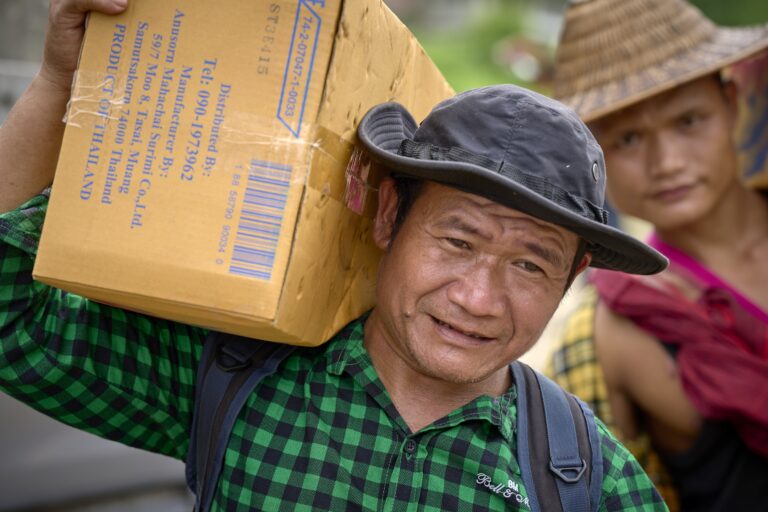A community exists when there is a bishop with his priests and faithful who celebrate the Eucharist and proclaim the Word of God”. It exists even if the majority of the population is displaced and the land is torn apart by war. It exists, by God’s grace, even if the bishop himself is a wanderer, an outcast, driven from his cathedral, which has become an army base camp.
These are the convictions of Bishop Celso Ba Shwe, these are the words the pastor goes on to say to comfort, console and encourage his faithful in the diocese of Loikaw, whose territory covers the state of Kayah, in eastern Myanmar. “Only the gift of the Holy Spirit, a strength that comes from above, sustains us and gives us the courage and hope to move forward in this painful situation”, says Bishop Ba Shwe in a moving account given to The Synodal Times.
“The Church in Loikaw”- he explains, “has not given up”. It has not been discouraged even though, since the military junta seized power in February 2021, the civil war has gradually intensified, changing the face of the territory. Loikaw is one of the areas most affected by the clash between the army and rebel groups of the People’s Defence Forces, which have merged with ethnic militias traditionally existing in the border areas of Myanmar.
The situation has generated massive flows of internally displaced persons (IDPs): people forced to leave their homes to find refuge in the forests, far from the violence, where they have begun to struggle to support themselves. Families took refuge in makeshift refugee camps – also set up by Catholic parishes.
In order to “have the smell of sheep” – in the words of Pope Francis – to stay close to the people and share with them the hardships and sufferings of daily life, priests, religious and catechists have also temporarily left their churches to move to precarious places, in shacks, huts or tents where the displaced people live.
Bishop Celso Ba Shwe was driven out of the cathedral complex, first hit, then occupied by the Burmese army. And he began a life “as a refugee”, travelling to the various areas and parishes of the diocese, celebrating the sacraments, visiting refugee camps, blessing and comforting families tried by war and destitution.
“The Lord has given me a time of forced itinerancy. Even with the pain of having to leave the cathedral, all the goods and documents of our local Church – we will not know what we will find when this is over – I welcome this grace with an open heart. The Lord allows me to meet so many people, to be close to people, to listen and to console”.
He continues: “I live in absolute precariousness, in the gift I receive every day from my brothers, from the priests and from the people I meet. It is an experience of deep faith in God’s Providence, which takes care of me and all of us, and which I will never forget. It is a special time of closeness and love to God and neighbour”, he says.
In his prayers, the bishop had an inspiration: to build a wooden chapel in the forest, in a portion of land where so many families are camped. It was called the “new little cathedral of Christ the King”, a visible sign of a community that, in tribulation, gathers around Christ. That little bamboo church is the place where the Eucharist is celebrated and the Blessed Sacrament is kept.
There the community gathers to pray. From there a charity radiates that becomes consolation, comfort for the displaced, humanitarian aid. “The important thing is to preserve the faith, the sacraments, the charity, the community”, explains Ba Shwe.
With him, the priests of the diocese tread often rugged paths and cross very dangerous areas, travelling through territories where fighting continues. But they are aware that “people need our presence and encouragement in times of fear and uncertainty”, explains Fr. Paul, one of the priests in Loikaw.
Of the 35 parishes in the diocese, more than half are deserted because the priests and nuns have fled with the faithful to jungle camps. Moreover, in giving spiritual comfort to the displaced, “priests and consecrated men and women can be falsely accused by the military of supporting the resistance, and thus arrested and put in prison”, the priest explains. But this is the mission today in Loikaw. And Catholics carry it out and live their “here and now” with faith and courage.
Paolo Affatato is Asia editor in FIDES News Agency, contributor to L’Osservatore Romano and others.



